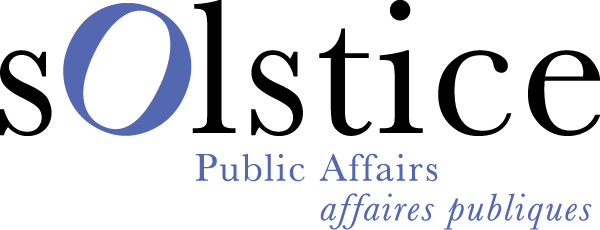Kiff: How Ontario Premier Doug Ford Successfully Courted the Francophone Electorate
The improbable story of how the Premier from Etobicoke carefully delivered on key promises to the Franco-Ontarian community and won the hearts and minds of a historically hostile constituency.
Much ink has been spilt over Doug Ford’s resounding electoral win. On June 2nd, Ontario voters delivered a massive second majority to the Premier, even increasing the size of the Ontario PC caucus by three seats. Many observers have commented on the Premier’s courting of blue-collar voters and tradespeople, evidenced by unprecedented endorsements from major private sector unions, traditionally the linchpin of the NDP vote. A less perceptible but significant realignment also took place. Counterintuitive as it may sound, Premier Ford has effectively changed the political chessboard by bringing Franco-Ontarian voters into the PC fold.
Twelve Ontario ridings comprise each over 10,000 francophones. Of the three major parties, only the Progressive Conservatives increased their share of these 12 seats, increasing their average vote share in these ridings by 4.1%. When former Glengarry-Prescott MPP Amanda Simard left the PCs and eventually joined the Liberals, the expectation was that the PC win in 2018 was an aberration, and that the Francophone Simard would be reelected. Yet, popular former mayor Stephane Sarrazin comfortably won back the seat for the PCs earlier this month. Voters hadn’t voted for Simard because she was Simard – they had voted for her because she was on the PC ticket.
Timmins is a rugged city in northeastern Ontario where the local economy depends almost entirely on natural resource extraction, with significant lumber and mining industries. Over 50% of the city’s population is bilingual. The riding has voted orange since time immemorial. NDP MPP Gilles Bisson had held various iterations of the seat since 1990 – for a whopping 32 years (he had previously served in the NDP government of Bob Rae). And yet, PC candidate George Pirie stormed to an upset victory ending more than three decades of NDP rule.
So what explains this strange and unexpected political realignment? How did the unilingual former city councillor from Toronto win over the hearts and minds of Franco-Ontarians? How did a Premier who had turned the Ministry of Francophone Affairs into a basement office, who jettisoned plans to finally give the community its own university – end up wooing his fiercest critics? The answer, as always in politics, is a combination of luck and skill. Four factors can help inform this turnaround.
First, Doug Ford showed a willingness to admit his mistakes and change course. In 2018, Ford sought to eliminate the position of the French Language Services Commissioner, and to reduce the status of the Ministry of Francophone Affairs from a full ministry to a government office. These moves inflamed the Franco-Ontarian community, and led to the defection of MPP Amanda Simard. Instead of doubling down, Ford quickly understood the sensitivities of this community, and reversed course.
Second, Ford dispatched the right people to heal the relationship between his party and the Franco- Ontarian community. The appointment of Caroline Mulroney as Minister of Francophone Affairs was a masterstroke, and immediately changed the tone of the government, and its reception by key stakeholders. The affable and soft-spoken Mulroney knew how to listen, and as a fluently bilingual Minister, gave the Ministry unprecedented heft and influence. The appointment of rookie MPP Natalia Kusendova, a former nurse of Polish and Slovak descent with impeccable French, further extended the olive branch, and Kusendova quickly built durable relationships with key community leaders. The Mulroney-Kusendova duo has made Francophone concerns a key consideration at the cabinet table.
Third, Premier Ford understood the importance of symbolism. The appointments outlined above were an encouraging start, soon followed up by addressing long-standing demands of Canada’s second largest-French speaking community. The government reversed course on slashing funding from Ontario’s first francophone university, and Mulroney presided over the opening of the Université de l’Ontario français in the heart of downtown Toronto to great acclaim. Parliamentary Secretary Natalia Kusendova pushed hard to have the Franco-Ontarian flag recognized as an official emblem of Ontario, and her bill became law in September 2020, giving the community the respect it had been seeking for decades. Finally, Ontario’s Minister of Colleges and Universities Jill Dunlop fought to grant the newly independent Université de Sudbury government funding so that it could pursue its mandate as Northern Ontario’s francophone leader in higher education, and reverse the mass exodus of Francophones from the mid-North to the big cities. Symbolism matters and money talks, and Premier Ford delivered both.
Fourth and lastly, the Premier’s personal attributes endeared him to a community that never expected to like him. The Premier’s lack of French-language skills is no secret. Luckily for him, neither one of his opponents were any better. Seldom have all three major provincial party leaders been so conspicuously unilingual, and so, the natural advantage that normally accrued to the other parties vanished. A significant proportion of Franco-Ontarian voters are tradespeople and work in the resource industries. Ford’s everyman personality and novel brand of blue-collar conservatism made him the most relatable party leader to significant swaths of Franco-Ontarians.
Doug Ford’s wooing of the Franco-Ontarian constituency is unprecedented and has really only just begun. Already, the Premier has made history and gone where no PC Premier – with the possible exception of Bill Davis – has dared venture before. Franco-Ontarians will henceforth listen more attentively when the Premier says, “bonjour, je m’appelle Doug.”
Stewart Kiff is President of Solstice Public Affairs, Canada’s leading bilingual public affairs agency. He currently serves on the National Council of the Conservative Party of Canada.
